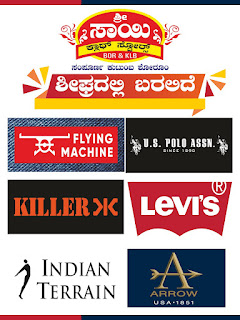 An excavation of the ancient city of Anemurium, modern-day Anamur in southern Turkey, has unearthed a complete 13-line Greek inscription dedicated to a champion wrestler. It dates to the 2nd century A.D. and is the first complete inscription found at Anemurium.
An excavation of the ancient city of Anemurium, modern-day Anamur in southern Turkey, has unearthed a complete 13-line Greek inscription dedicated to a champion wrestler. It dates to the 2nd century A.D. and is the first complete inscription found at Anemurium.
The inscription was carved on a marble pedestal 42 inches high and 20 inches wide and was discovered in the Harbor Bath, one of the city’s four known public baths. The dedication names one Flavianus, organizer and sponsor of an athletic competition that took place every five years. At the second of these competitions, an athlete  named Kaikilianos, won the adult wrestling category. He didn’t just earn a gold medal or whatever form the first place award took in these local games. His victory was so notable an inscription honoring him was erected, carved onto what could be an altar or, more likely, the base of a statue. That it was placed in the public baths, a center of social, cultural and athleticism, indicates the winning wrestler was someone of great prestige and popularity.
named Kaikilianos, won the adult wrestling category. He didn’t just earn a gold medal or whatever form the first place award took in these local games. His victory was so notable an inscription honoring him was erected, carved onto what could be an altar or, more likely, the base of a statue. That it was placed in the public baths, a center of social, cultural and athleticism, indicates the winning wrestler was someone of great prestige and popularity.
Kaikilianos (Caecilianus in Latin) was a popular name in 2nd and 3rd century Asia Minor and north Africa, appearing on dozens of inscriptions. There are funerary inscriptions and dedications referencing members of the prominent Caeciliani family who held magistracies and priesthoods (both traditional Roman and early Christian) and more commonly, their freedmen who adopted the family name after manumission.
 The Flavianus name is known too. In fact, an inscription found in Oinoanda, less than 250 miles west of Anemurium, mentions one Lucius Septimius Flavianus Flavillianus, a champion in wrestling and the pankration, the pummel-to-an-unconscious-pulp boxing discipline. He had been a champion in these sports since he was a youth, and his skill in these combat spots made him a successful military recruiter after he joined the Roman army. He too had a statue dedicated to him in the city’s agora. There’s no evidence connecting this Flavianus to the sponsor of the games in Anemurium other than the sheer coincidence of the same sport being referenced in statue dedications and that they both lived in the 3rd century, but it’s a neat fortuity.
The Flavianus name is known too. In fact, an inscription found in Oinoanda, less than 250 miles west of Anemurium, mentions one Lucius Septimius Flavianus Flavillianus, a champion in wrestling and the pankration, the pummel-to-an-unconscious-pulp boxing discipline. He had been a champion in these sports since he was a youth, and his skill in these combat spots made him a successful military recruiter after he joined the Roman army. He too had a statue dedicated to him in the city’s agora. There’s no evidence connecting this Flavianus to the sponsor of the games in Anemurium other than the sheer coincidence of the same sport being referenced in statue dedications and that they both lived in the 3rd century, but it’s a neat fortuity.
[Excavation leader Mehmet] Tekocak pointed out that previous inscriptions suggest that Anemurium was a center for training athletes in antiquity. “We know that athletes from here participated in national and international competitions and won awards. Therefore, Anemurium, in addition to being a port city on the Eastern Mediterranean trade route, was also likely an important center for training athletes in antiquity,” he said.
* This article was originally published here











No comments:
Post a Comment